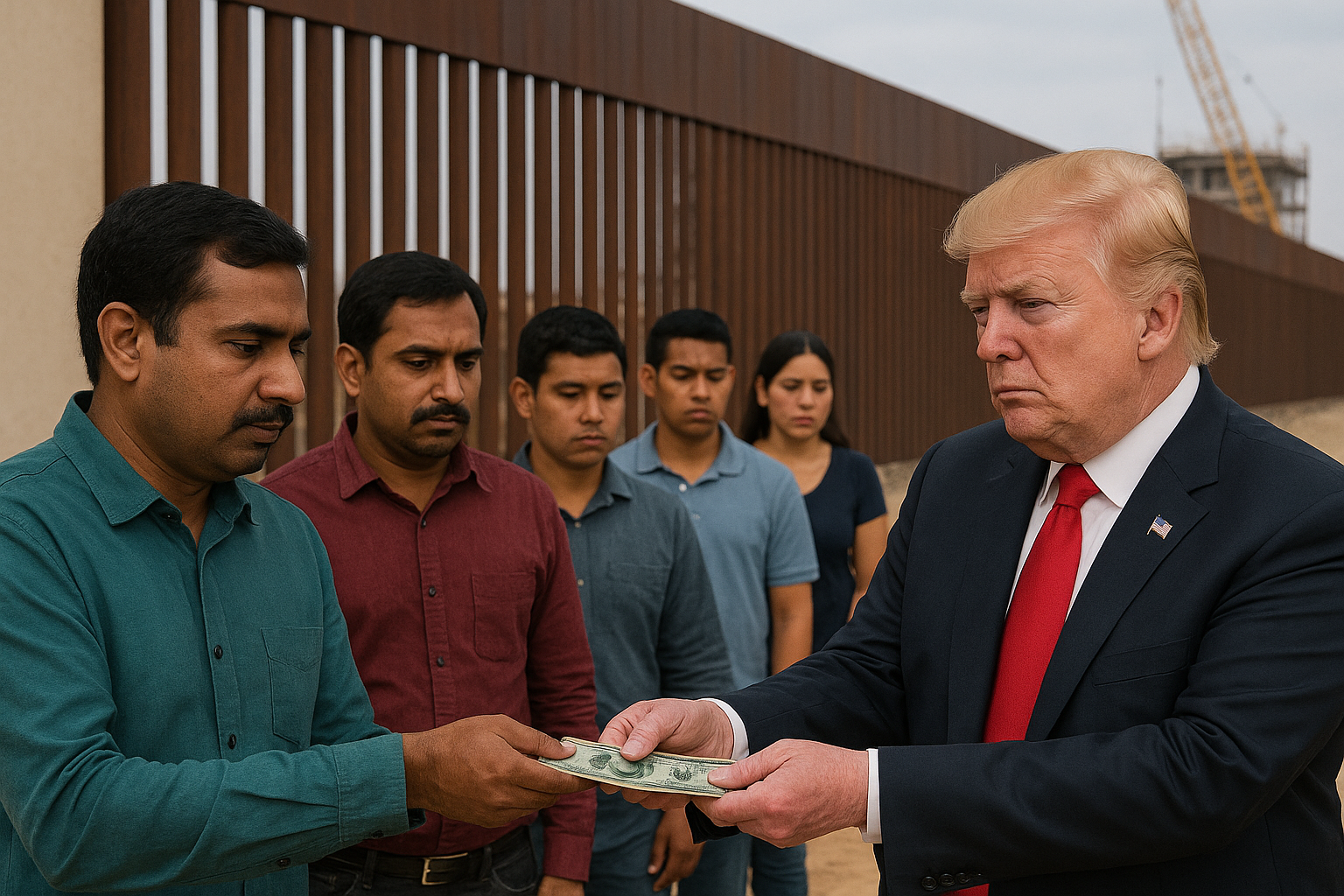When President Donald Trump signed the “One Big Beautiful Bill” into law on July 4, 2025, he wasn’t just pushing through a major tax and spending package—he was making a clear statement: migrants will help pay for America’s immigration enforcement.
At the heart of the legislation is a 1% tax on cash-based international remittances, set to take effect on January 1, 2026. While 1% may seem negligible, this tax directly hits the millions of hard-working individuals—immigrants and citizens alike—who regularly send money back to support their families abroad.
Let’s be clear: remittances are not luxuries. They’re lifelines. In 2023, individuals in the U.S. sent more than $80 billion in remittances globally, making America the world’s largest source of these essential transfers. For countries like El Salvador, the Philippines, and Haiti, remittances account for over 20% of GDP, according to the World Bank.
Trump and his allies argue the tax is a way to raise revenue for immigration enforcement and border security. They claim it will reduce illegal migration and generate billions for U.S. programs. But the truth is far more troubling. The tax doesn’t distinguish between legal and undocumented residents. It applies to anyone sending cash remittances—whether they’re a U.S. citizen supporting family in India, a green card holder aiding relatives in Mexico, or a foreign worker wiring money home from a second job.
The policy disproportionately affects lower-income senders who rely on cash-based services like Western Union or MoneyGram. These individuals are often unbanked or underbanked, excluded from digital financial services, and already pay an average of 6% in transfer fees. With this new tax, that total jumps to about 7%, a 17% increase in cost for a typical $300 transfer. It might not sound like much in Washington—but on the ground, it can mean the difference between a paid electricity bill or a missed school term.
Estimates suggest the tax could generate $4 to $4.6 billion over a decade. For a federal budget measured in trillions, it’s barely a drop in the bucket. Yet for migrant families, it’s a sharp cut into already tight margins. It also risks driving people toward informal or underground transfer channels—like hawala systems or cryptocurrency—which are harder to trace, regulate, and secure.
Beyond the numbers, there’s a larger issue at play: remittances are one of the most efficient, direct forms of foreign aid. They don’t pass through corrupt bureaucracies or bloated NGOs. They go from pocket to pocket, sustaining families, stabilizing communities, and—ironically—reducing the economic desperation that often fuels migration in the first place.
This is not the first time President Trump has floated such an idea. During his first term, he proposed forcing Mexico to pay for his border wall by threatening to block remittances. That didn’t materialize—but now, in his second term, he’s managed to insert a version of that policy into federal law.
Supporters call it smart governance. Critics see it for what it is: a punitive tax aimed at scoring political points by squeezing vulnerable communities. It punishes behavior that should be praised—working hard, supporting family, and participating in the financial system.
Let’s also not forget the broader consequences. When families abroad receive U.S. remittances, they often spend that money on American goods and services, indirectly supporting U.S. exports and soft power. Cutting into that flow hurts not just the recipients abroad but the American economy and influence.
Rather than taxing the most financially vulnerable, we should be investing in secure, affordable remittance systems and supporting financial inclusion for all. The U.S. has long championed global economic development and upward mobility—this tax turns its back on both.
If President Trump truly wants to fund border enforcement, there are more equitable and effective ways to do it. Targeting remittances may look good on a campaign flyer, but it comes at the expense of the very people who embody the American dream.














